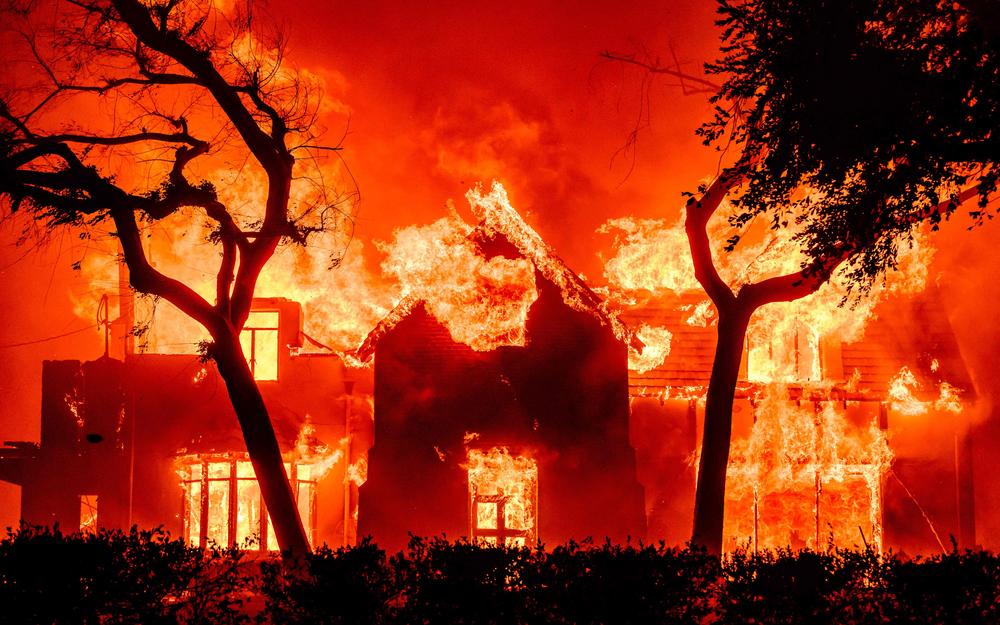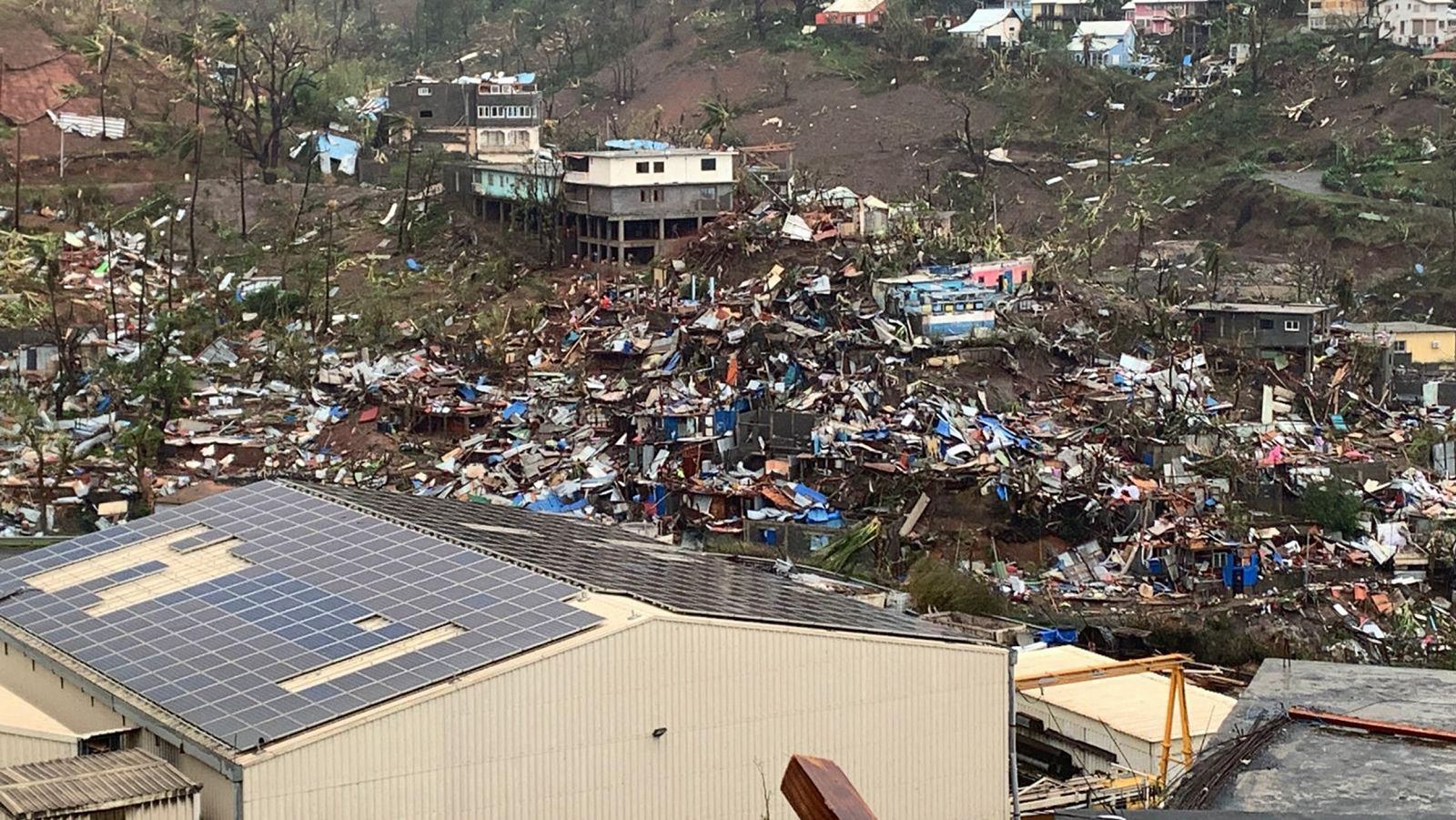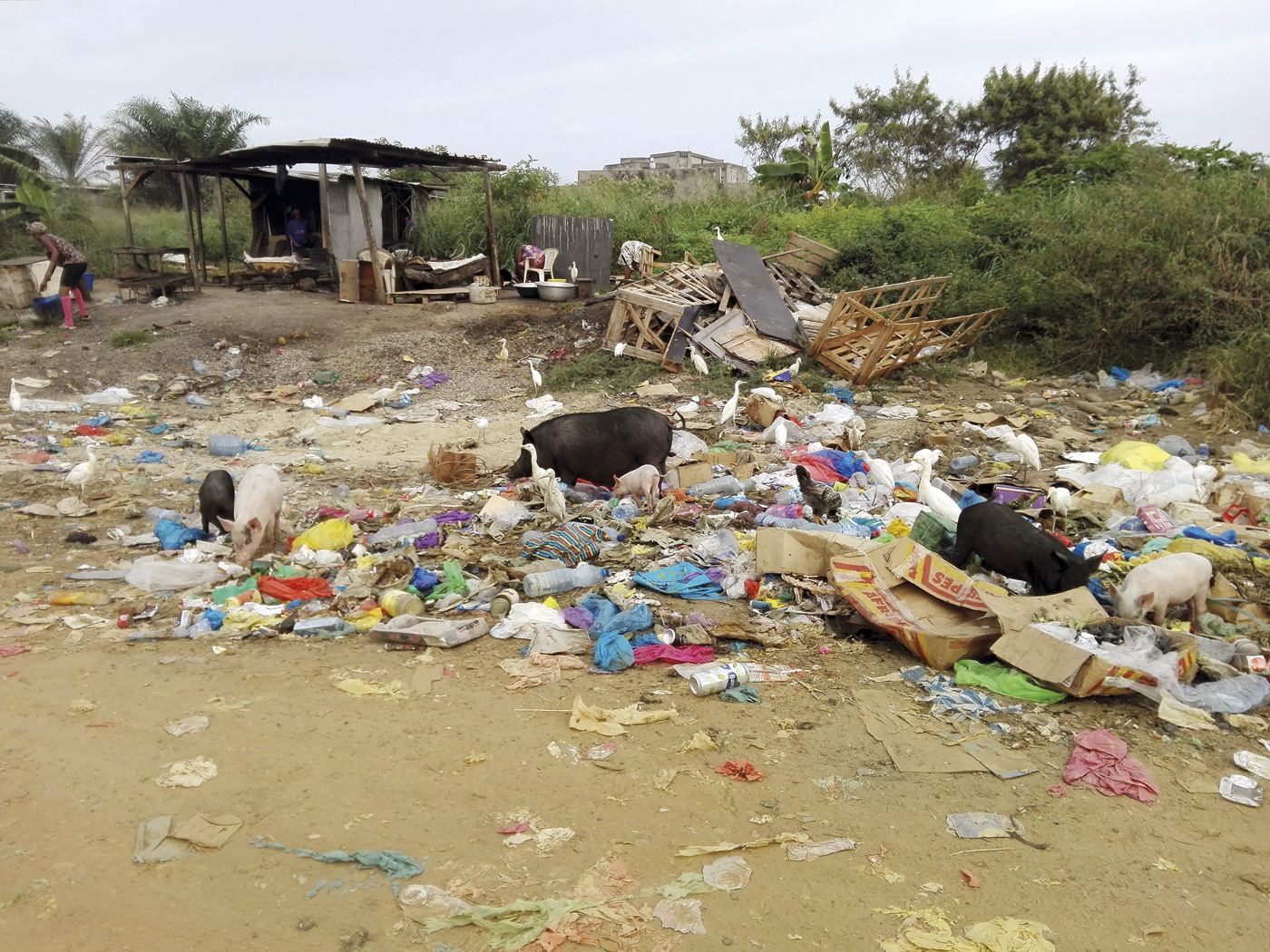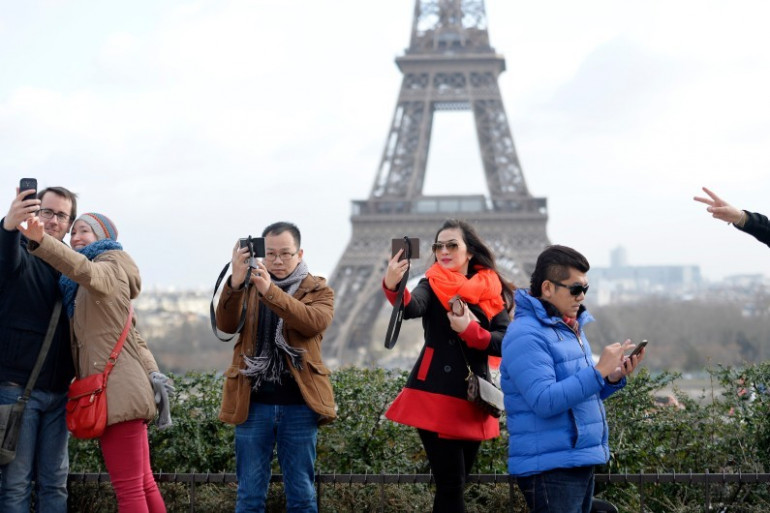In the midst of a climate emergency, rather than changing the business model, Total prefers to accuse and open the doubt
- Large companies in the fossil fuel sector have recently been discussed at the crossroads of climate, geopolitics and energy resources. Investigating how these multinationals have been monitoring their acceptability and image for decades, experts have discovered that these companies have raised doubts about climate change and promoted demobilization, using different communication strategies, always with the same goal of not changing their business model. Although it is difficult to know how far they can go, tensions will increase.
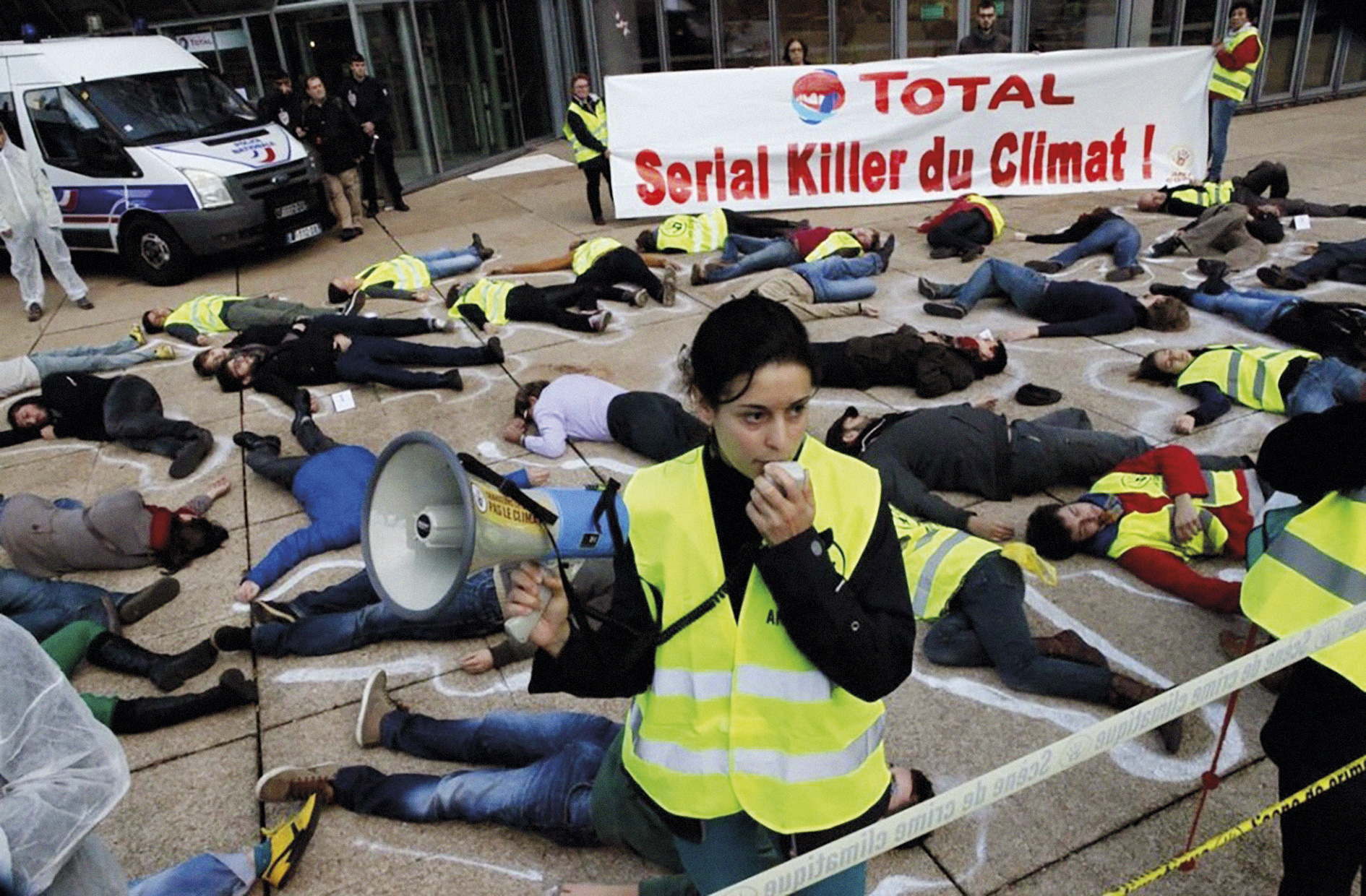
In the recent times when the effects of climate change are expanding and hardening considerably, and where energy tensions increase simultaneously, there are debates on responsibilities. How are greenhouse gas emissions distributed and efforts to reduce energy use in general? Is the effort that is being asked of each individual proportionate to their true responsibility? To what extent are current prices of gas oil, electricity or gas justifiable? In these price increases, the part actually affected by the scarcity of resources and the amount generated by speculation. Among these uncertainties is a question to several claims: in these tangled crises – climate, energy, food, geopolitics – to see if large companies do not deceive us somewhere, using confusion prioritizing their interests.
Although the context of recent months stimulates these questions, the problem is not new. Many companies with high responsibilities in energy and greenhouse gas emissions, i.e. with high level investments in fossil fuels, have for years developed communication strategies to generate doubts about their effects and blur the perception of their responsibilities. A significant example is Total (redesignated in 2021 TotalEnergies), a multinational based in Paris.
In the 1970s, the fossil fuel industry appropriated the greenhouse effect problem and began developing communication so as not to alter its business model.
Liability coverage strategy
Early warnings and emerging accountability led by historian Christophe Bonneuil: According to the study Total’s responses to global warming, 1971–2021 (“Early Alerts and Emerging Responsibility: Responses from Total-for Global Warming, 1971-2021”), Total and its predecessors obtained information on the origin of climate change and its worst potential consequences in 1971. In the 1980s, they received more complete information. A few years later, in the years when the 1992 Rio de Janeiro Summit was being prepared, in which more and more was being talked about renewable energy and climate, Total began to actively communicate to deny climate change. In the late 1990s, they changed the strategy: they decided not to deny the reality of climate change, but to accept scientific consensus on climate in public statements, while encouraging the delay in measures to combat climate change, even developing strategies to be able to eat their word. Bonneuil and his colleagues talk about apparent ignorance, avoidance of responsibility, strategic philanthropy, promotion of ineffective solutions and communication for the management of public conflicts blicos.La company
Total is not the only one who has developed these efforts. Similar efforts have also been made by ExxonMobil or Royal Dutch Shell companies, whether to release public sustainability statements while hampering concrete climate action, or to adapt speeches according to the readers of the different communications, in order to maintain academic credibility on the one hand and to publish alleged editorials to increase doubts in a wider audience.
Jean-Baptiste Fressoz, historian of science and techniques, works on energy transition and climate perception issues, and in an interview published this year he quotes as a significant anecdote to Edward E, director of the R&D department of Exxon. David fooled NASA climatologist James Hansen at a climate conference in 1982. He told Hanseni that, of course, the greenhouse effect was known for a long time, that it was dangerous and that this was no longer the subject of scientific discussion, but that it was a real debate about what was going to develop more rapidly: the climate disaster or the energy transition. And of course, he warned him that the energy sector should be aware of the challenge of transition. Hans did not notice the fraud and thanked him for his consistency. A few months later, David announced at a summit of energy companies that fossil fuels and especially coal would remain a great place in the 21st century. In 1979, David promoted an ambitious project for the collection of CO2 samples from the sea and the atmosphere through a transport boat by the company Exxon, with the aim of improving climate modelling. As soon as he retired, he signed the pillars that undervalued the importance of climate change, denying the need to “decarbonize” the economy.
Fossil fuel companies have long developed communication strategies to generate doubts about their effects and blur the perception of their responsibilities
Fressoz stresses that expressions such as “the new awareness of the need to protect the environment” are used as a trick, as if until then we were not aware of the problem, as if the climate problem were based on a vacuum to cover, and not on an economic order to reform. In essence, although each year implies its own weather disasters, this “awareness” began to develop long ago. In the opinion of Fressoz, this awareness has been claimed too long to serve no purpose and in the worst can be an absolution to pollutants.
Commercial doubts
The Bonneuil group calls agnogesis, the organization of ignorance by the hands of social sectors – ignorance as resulting from the organized work of social actors or “ignorance derived from a work organized by agents”). A decade ago, science historians Naomi Oreskes and Erik Conway published their research on this topic, entitled Merchants of Doubt. It described how the strategy of sectors that do not want to change their business model in the face of different health problems or global environment (tobacco, acid rain, ozone hole, etc.) has been fed systematically, generating uncertainties and confusion, in order to destroy the scientific consensus obtained. In each situation the same tactic was set in motion: to remove credibility from scientific research, to expand false information, to fuel confusion and doubt. Both historians, including Bill Nierenberg, Fred Seitz and Fred Singer, the three physicists and those who work as sicators for the interests of big companies in the tobacco, chemical or oil sector.
Mickael Correia Mediaparte, in his book Criminels climatiques ("Criminal Climates"), focuses on three large companies: Saudi Aramco, China Energy and Gazprom, each with very close links to their state. Correos explains the companies, states and banks of fossil fuels and the revolving door systems between the three, showing how their negative effects are socialized. The main conclusions are the need to go to justice against selling uncertainties, develop strategies to block their infrastructures and create alliances with workers in the fossil industries.
In the coming years it is possible that the task of doubt sellers is on the increase.
There was no one or all. That we all suffer at least if the necessary changes are not made so that no one suffers the climate emergency. You – reader – I – Jenofá-, they – poor – and they – rich. The fires in Los Angeles did not give me satisfaction, but a sense of... [+]
The understanding and interpretation of the mathematical language is what is important in the learning process, at least it is what we say to our students. The language of mathematics is universal, and in general, the margin of error for interpretation tends to be small. We... [+]
Recently, when asked what the climate emergency consisted of, a scientist gave the excellent answer: “Look, the climate emergency is this, you increasingly see on your mobile more videos related to extreme weather events, and when you realize, it’s you who are recording one... [+]
In recent weeks it has not been possible for those of us who work in architecture that the climate phenomenon of Valencia has not been translated into our work discourse. Because we need to think about and design the path of water in decks, sewers, plazas and building parks. We... [+]












-(1).jpg)
